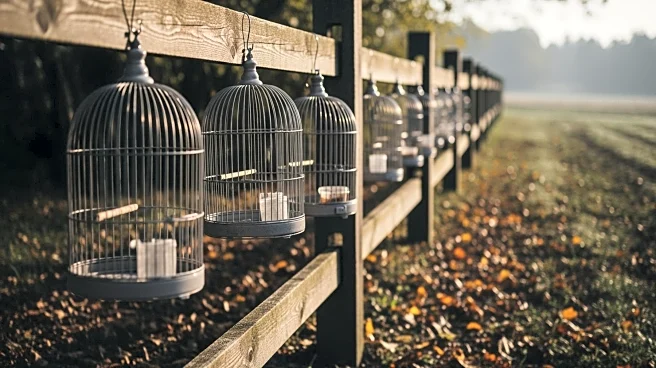What's Happening?
A fifth case of bird flu has been confirmed in Suffolk, England, in a small backyard flock of poultry. The Department for Environment, Food and Rural Affairs (Defra) has identified the H5N1 virus among birds in Lawshall, near Bury St Edmunds. In response,
a 3km protection zone and a 10km surveillance zone have been established around the affected area, and all poultry will be humanely culled. Since November 6, Defra has enforced a strict housing order across England for poultry keepers with more than 50 birds, requiring them to keep feed and bedding indoors and to disinfect clothing, footwear, equipment, and vehicles.
Why It's Important?
The outbreak of bird flu in Suffolk highlights the ongoing challenges in managing avian diseases that can have significant impacts on agriculture and wildlife. While the risk to the public is considered very low, the measures taken are crucial to prevent the spread of the virus to other areas and potentially to humans. The situation underscores the importance of biosecurity measures in protecting both domestic and wild bird populations, as well as the economic implications for poultry farmers who may face losses due to culling.

















